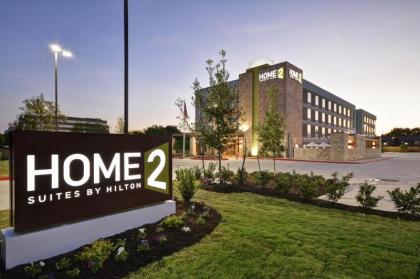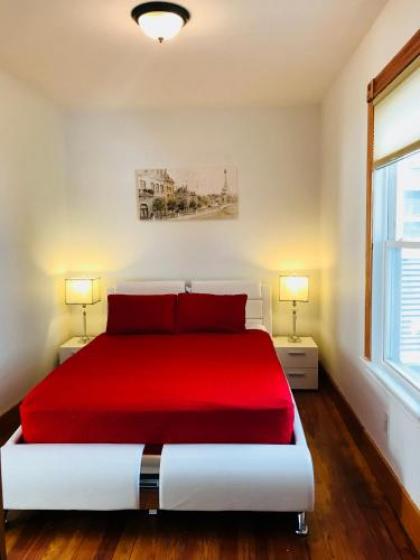Best Hotels Near Arnold Arboretum of Harvard University
School Street (1.9 km from Arnold Arboretum of Harvard University)
This furnished two-bedroom Egleston Square condo in Jamaica Plain is located along the Orange line subway in Boston. The stainless steel appliances in the kitchen include a dishwasher, a gas burner, an oven, and a microwave.
342 Longwood Avenue (3.7 km from Arnold Arboretum of Harvard University)
This hotel is centrally located, within walking distance of many of Boston's cultural, recreational, and business districts. It features a multilingual staff, modern amenities, and is connected to the Dana Farber Cancer Institute.
395 Chestnut Hill Avenue (3.9 km from Arnold Arboretum of Harvard University)
Located in Boston 2.6 mi from Longwood Medical Area AC Hotel by Marriott Boston Cleveland Circle features accommodations with a fitness center private parking a bar and a shared lounge. The property is around 3.1 mi from Fenway Park 3.
40 Mt. Hood Road (4.3 km from Arnold Arboretum of Harvard University)
Located moments from public transportation connections to Boston's city centre, this suburban hotel provides convenient access to area attractions such as the baseball stadium Fenway Park.
200 Brookline Avenue (4.3 km from Arnold Arboretum of Harvard University)
Sonder at Pierce Boston is located in Boston near Fenway Park, Longwood Medical Area, and the Hynes Convention Center.
125 Brookline Avenue (4.5 km from Arnold Arboretum of Harvard University)
This Boston hotel is a short walk from Fenway Park, the home of the Boston Red Sox. The Residence Inn Boston Back Bay/Fenway provides complimentary WiFi and a complimentary daily breakfast.
645 Beacon Street (5.0 km from Arnold Arboretum of Harvard University)
Fenway / Kenmore The Boston Hotel Buckminster is an ideal starting place for exploring Boston (MA). The facility provides a variety of amenities and incentives to ensure your stay is enjoyable.
22 Edgerly Road (5.1 km from Arnold Arboretum of Harvard University)
Located 5 minutes’ walk from Symphony Hall this Boston guest house features shared outdoor terraces. Fenway Park home of the Boston Red Sox is 1 mile away.
Top 10 Trending Hotels Near Arnold Arboretum Of Harvard University See all
Budget Hotels Near Arnold Arboretum Of Harvard University See all
Hotels With Great Access To Arnold Arboretum Of Harvard University! See all
Arnold Arboretum of Harvard University, Boston, MA
The Arnold Arboretum of Harvard University in Boston, Massachusetts is a historic public garden and research facility devoted to the cultivation, display and study of woody plants. Founded in 1872, it is the oldest arboretum in North America, and the second-oldest institution dedicated to horticultural research after the Royal Botanic Gardens at Kew, England. The Arnold Arboretum occupies 265 acres of land in Jamaica Plain, a neighborhood of Boston located about 5 miles southwest of downtown. It is an integral part of Harvard's Faculty of Arts and Sciences, yet managed independently from other university-affiliated gardens.
The Arboretum plays an important role in the conservation of rare plant species; its living collections comprise over 8,000 trees, shrubs, vines and herbaceous plants representing over 13,000 individual specimens from more than 4,500 taxa. It is home to more than 600 Champion Trees – specimens that are either unique within their species or have attained a greater size than any other known tree of that species on record. The grounds also contain several ponds including Weld Pond and Leventritt Shrub and Vine Garden which showcase some of the hardiest trees found anywhere in the world.
In addition to its living collections, the Arboretum has a rich library with significant holdings related to botanical science and horticulture as well as an extensive herbarium collection with nearly 1 million preserved specimens representing thousands of plant species from around the globe. The Arnold Arboretum also houses an active program for scientific research into evolutionary biology and plant genetics as well as educational programs for students at all levels from pre-kindergarten through college-level courses. There are many ways for visitors to explore such as guided tours led by trained docents or self-guided exploration via maps or smartphone apps. Additionally, there are various classes offered that range from basic pruning techniques to specialized topics like propagation and native plant identification.














































